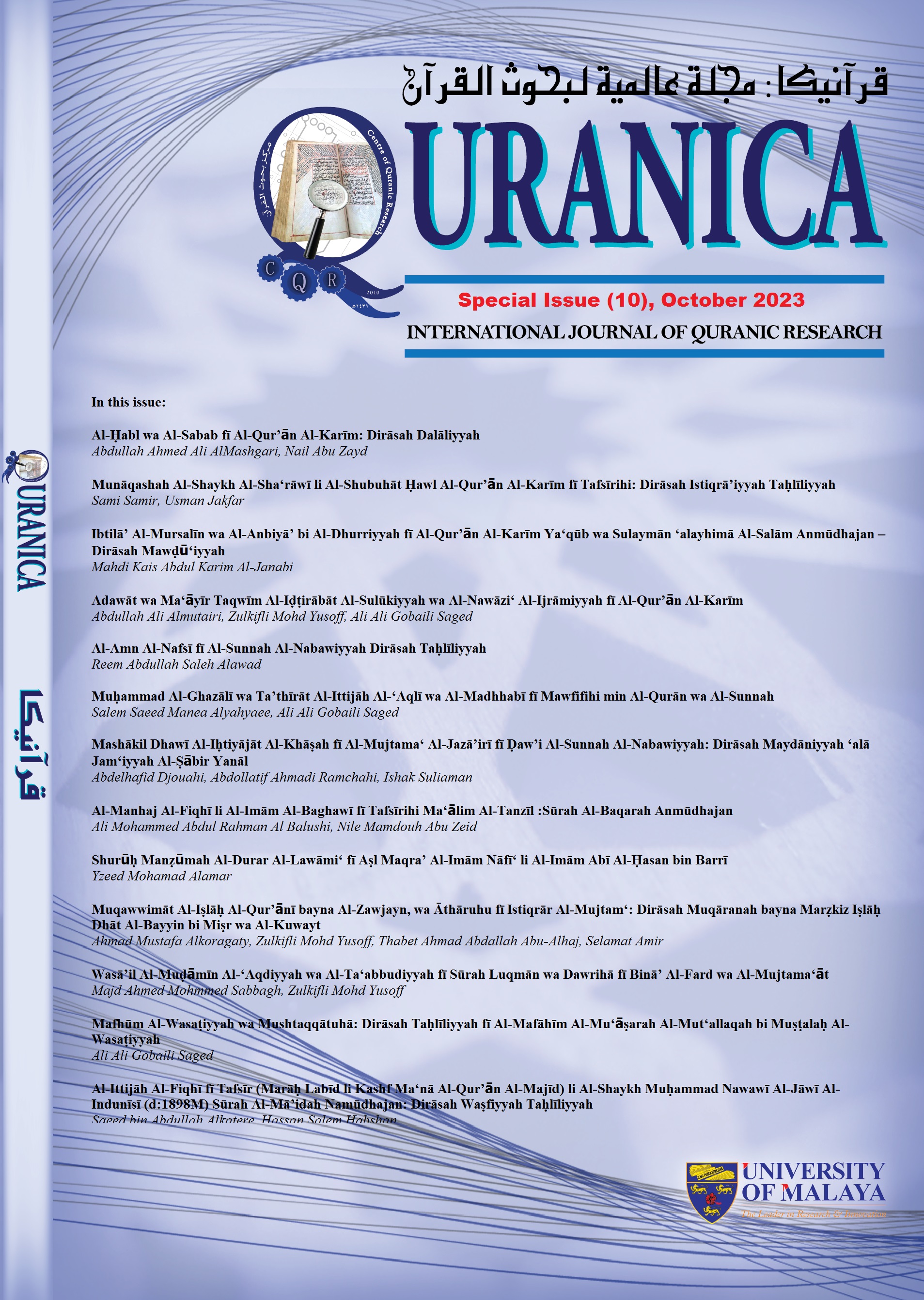Muḥammad Al-Ghazālī wa Ta’thīrāt Al-Ittijāh Al-‘Aqlī wa Al-Madhhabī fī Mawfifihi min Al-Qurān wa Al-Sunnah
Main Article Content
Abstract
The aim of this research is to introduce Mohammed Al-Ghazalī and his position in the modern rational school, explain the most prominent criticisms against him concerning his approach to dealing with the Qur’an and Sunnah, identify its origin and reasons for him. The research adopted the analytical inductive approach as well as the critical approach to achieve. The findings have revealed that Sheikh Al-Ghazalī is one of the followers of this school who are highly influenced by it. Despite his reverence for the Prophet’s Sunnah, his recognition of its status, and his defense of it before its enemies and adversaries, he made many slips. The most important one is saying that Hadith is presumptive and rejecting it if it contradicts the absolute one. Another mistake is his call for the criticism of the texts by the jurists for the narrators’ failure and their jurisprudential shortcomings, the call for applying his approach in refuting Āḥād (Hadith narrated by one) and criticizing the texts, even Hadith of the two books (Ṣaḥīḥs) in general, and his haste sometimes in speaking against the trustworthy narrators and scholars. These slips are attributed to some subjective reasons concerning his poor background of hadith in the first place and the influence of his intellectual affiliation to the modern rational school and the Hanafi without controls or accurate scientific methodology. The most unfounded approach was saying that the Hadith should be presented or compared to the Qur’an before judgment, so it must be refuted - no matter how true it is - when it contradicts the indications of the Qur’an.
Downloads
Article Details
Disclaimer
QURANICA makes every effort to ensure the accuracy of all its contents. However, opinions, discussions, views and recommendations are expressed in this journal do not necessarily reflect the official policy of QURANICA or views of its editors or publishers. Therefore, QURANICA and its publishers will not be liable for any controversy may be arisen. The journal reserves the right, at its sole discretion, to change its terms and conditions of publications.
Copyright
It is a condition of publication that manuscript submitted to the journal have not been published, accepted for publication, nor simultaneously submitted for publication elsewhere. By submitting a manuscript, the author(s) agrees that copyright for the article is transferred to the publisher, if and when the manuscript is accepted for publication.
